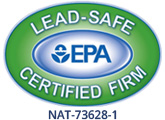How Can Plumbing Affect a Home’s Foundation?
 When a toilet runs slow or you see damp spots on the floor, you might think it’s a clogged or burst pipe. While these factors might be the direct issue, recurring plumbing problems might actually stem from the foundation supporting your home.
When a toilet runs slow or you see damp spots on the floor, you might think it’s a clogged or burst pipe. While these factors might be the direct issue, recurring plumbing problems might actually stem from the foundation supporting your home.
How the Foundation Affects Plumbing
Foundations move, as a result of the moisture and soil below. Precipitation and moisture from leaking pipes are absorbed by the soil, which then expands. As this happens, it exerts enough force to move a home’s foundation and the ground below.
At the same time, pockets of loose soil and air also develop from these shifts. Over time, the foundation gradually migrates to these empty, looser areas.
For a homeowner, these changes tend to be gradual and uneventful, until you notice issues with your property. Foundation cracks are one common sign and plumbing issues are another, depending on how your home was constructed.
Frequently, home designs divert plumbing through the foundation’s concrete, a method known as slab plumbing. Another option, the pipes may be located below the foundation. A shifting foundation can damage both types of pipe orientation.
Homes built after 1980 are equipped with a moisture barrier. Concrete is relatively absorbent but does not dry easily. The moisture barrier offers a protective mechanism, helping concrete to stay dry. For homes without a moisture barrier, the concrete is exposed and has a higher likelihood of shifting after it absorbs moisture over the years.
How do these factors affect your plumbing? As the foundation moves, the pipes are pulled apart and get dislodged from their position passing through the foundation. When this occurs, the seals can open, causing water and any waste to leak out. You may find mysterious leaks, especially in the basement or other less-visible areas like crawl spaces.
For pipes located underground, the moving foundation affects where they connect to the pipes in your home. As this occurs, you may spot damp – if not saturated – soil right next to the foundation. You may also notice pooling around any sprinkler pipes.
How Plumbing Affects the Foundation
This process may become cyclical: Leaking pipes affect the foundation, which causes additional damage to the plumbing system after it shifts.
An issue primarily concerning pipes that pass through the foundation, older materials have a higher likelihood of cracking or sudden changes in weather may result in damage. Both scenarios lead to leaking, with water or waste being directly absorbed by the foundation.
At this stage, the issue emerges through your flooring or walls – particularly cracked areas or damp spots that feel like rot. You might also see shifts in water pressure, a higher water bill or visible changes to your foundation.
The absence of a moisture barrier may also cause the foundation’s concrete to soak up water but never dry completely. Also, pipes made out of clay, cast iron, copper or steel are more likely to develop miniscule leaks that gradually allow water to seep out.
Signs of a Problem and What You Can Do
Your home’s foundation may be affecting the plumbing system if:
- Your toilet runs slower than usual or doesn’t flush all the way, especially when it rains
- You notice drains gurgling
- The temperature across your floor seems to suddenly change from warm to cold
- You see wet spots and water stains on your floors
- You see soft spots or areas of rot along your floors
- Your home is experiencing water pressure issues
- You notice visible changes to your foundation or cracks along the walls
- You smell a foul, moldy odor in your home
- Your yard has developed depressions or areas where water pools
To address the issue, you may need to work with a plumber and building professional to fix your home’s foundation. Along with addressing the pipes, you’ll need to:
- Have the foundation waterproofed
- Move any sources of moisture away from your home, including sprinklers, shrubbery and trees
- Make sure the gutters are draining correctly
- Check to see that water doesn’t pool around your foundation
- Have all cracks along the foundation and walls sealed from the inside
- Get rid of any mold that has started to accumulate
- Install a sump pump to help control water and flooding in the future
As you prepare to have your home’s cracked or damaged pipes repaired, reach out to MJ Fahy & Sons. To learn more about our services, contact us today.




